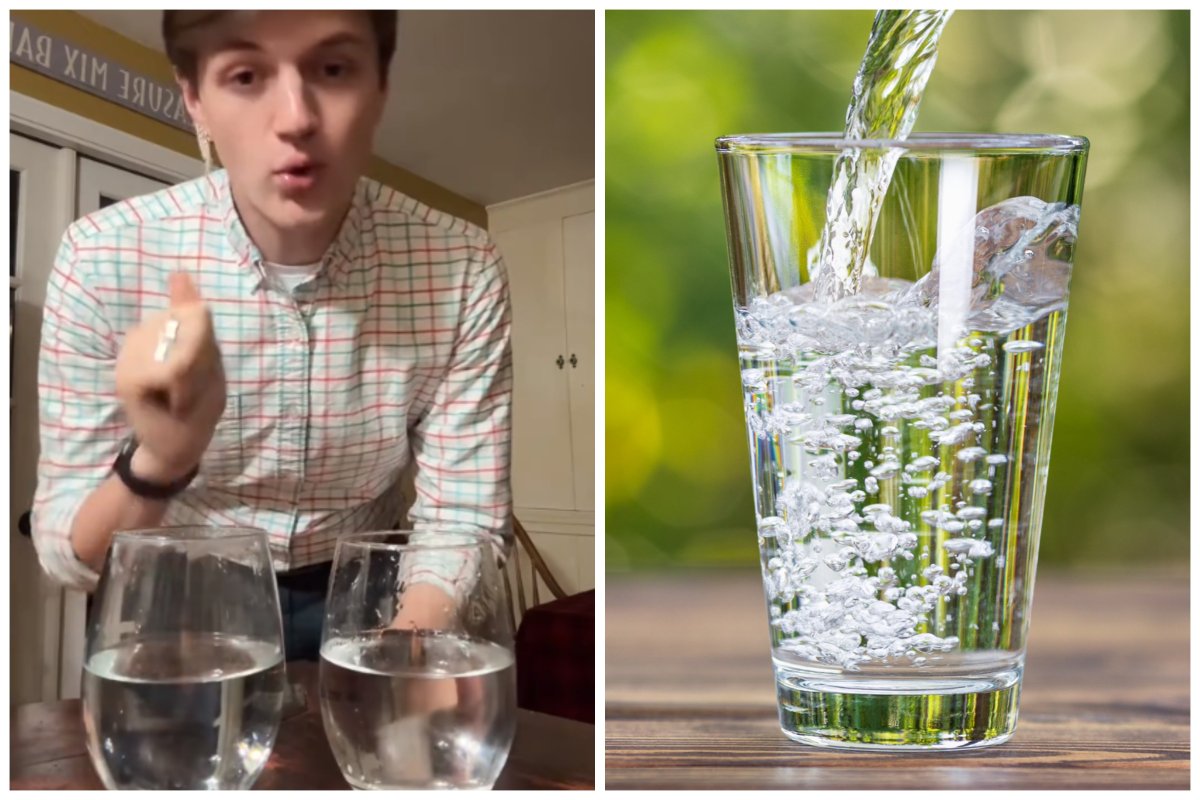Can you hear the difference between hot and cold water? The answer is almost certainly yes, although you might not realize it.
In a viral video, TikToker Wyatt Cannon demonstrated this phenomenon, leaving the internet in disbelief.
"The difference I hear is that the hot water has a softer, more bodied sound while the cold water sounds more sharp and focused," Cannon, who goes by the username @curedeggyolk on TikTok, told Newsweek.
In the video, Cannon presents viewers with two glasses: one is filled with boiling water while the other is freshly chilled. He then asks viewers to close their eyes and listen to him pouring the cups into two more identical glasses and guess which was the hot and which was the cold water based on sound alone.
"Prepare to have your mind blown," he said.

The video has received over 26 million views, as well as millions of likes and thousands of comments.
"The hot one sounds wompy and the cold one sounds clinky if that makes sense," said one user.
"Cold water sounds more refreshing if that makes sense," said another.
But what is actually happening here, at a scientific level?
It all comes down to viscosity—i.e. how thick the liquid is. You can see this much more clearly with honey, science presenter and physicist Steve Mould explains in a video on Tom Scott's YouTube channel. Cold honey tends to act more like a solid, while warm honey is much more runny. The same thing happens with water.
To understand why this happens, we need to look at the molecules inside the water. At low temperatures, these molecules don't have a lot of energy, and so move around sluggishly. This slow movement allows temporary bonds to form between the molecules, making the overall consistency of the liquid more viscous.
However, as we heat things up, the molecules get more energy and move around faster, making it harder for these temporary bonds to form and thus making the liquid more runny. And it is this changing consistency that alters the sound of the pouring liquid.
"Although I am not a scientist, science is something that I find fascinating," Cannon said. "Whether it's a silly experiment like this to watching the upcoming solar eclipse in April or even collecting uranium glass, I am so enamored of the way our world works and hope that others can find the joy in science too."
Cannon said he was surprised the video had received so much attention, but not surprised by the interest. "There are so many unusual things about our world that would interest people but science is not something many actively seek out," he said. "Stay curious."
Do you have a tip on a science story that Newsweek should be covering? Do you have a question about the science of everyday objects? Let us know via science@newsweek.com.
Uncommon Knowledge
Newsweek is committed to challenging conventional wisdom and finding connections in the search for common ground.
Newsweek is committed to challenging conventional wisdom and finding connections in the search for common ground.
About the writer
Pandora Dewan is a Senior Science Reporter at Newsweek based in London, UK. Her focus is reporting on science, health ... Read more
To read how Newsweek uses AI as a newsroom tool, Click here.






